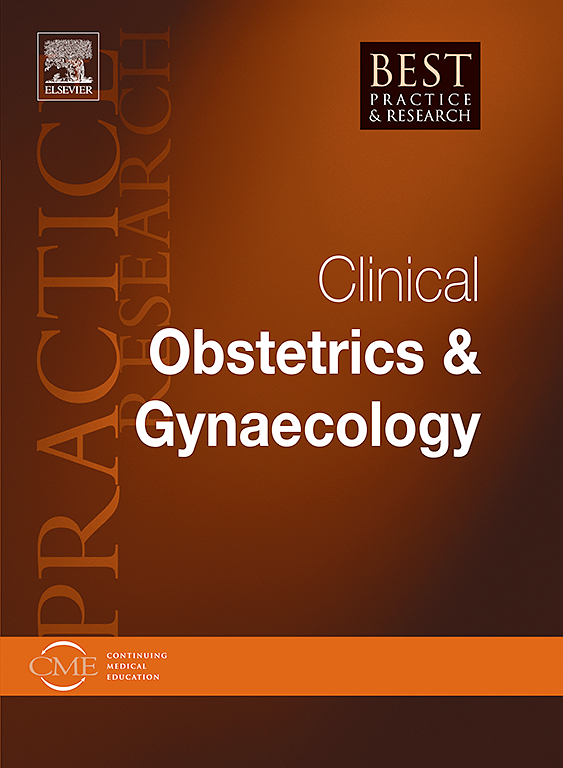Carrier screening and pregnancy
IF 4.1
2区 医学
Q1 OBSTETRICS & GYNECOLOGY
Best Practice & Research Clinical Obstetrics & Gynaecology
Pub Date : 2025-03-15
DOI:10.1016/j.bpobgyn.2025.102601
引用次数: 0
Abstract
Recessive genetic conditions impose a significant burden, often leading to severe childhood disorders, many of which remain untreatable. It is estimated that 1–2 % of couples are at risk of having an affected child in the general population, with the risk being significantly higher in consanguineous couples. Understanding the increased risk of having a child with a recessive disorder empowers prospective parents to make informed reproductive choices. With technological advancements, genetic screening has evolved beyond identifying only a few common conditions. Expanded carrier screening (ESC) now offers a single test that covers a comprehensive list of recessive disorders, addressing those that contribute most significantly to the burden of these conditions within specific populations.
ESC is recommended for all couples planning a pregnancy, with particular emphasis on consanguineous couples or those who are subfertile. To ensure responsible use of ESC, clinical service delivery should adopt a multidisciplinary approach, providing couples with the information they need to make voluntary, informed decisions. This includes access to high-quality genetic testing, genetic counseling, and psychosocial support.
National professional societies and governments play a crucial role in shaping guidelines, policies, oversight, and funding to guarantee equitable access to high-quality ESC services.
携带者筛查与妊娠
隐性遗传病造成重大负担,往往导致严重的儿童疾病,其中许多疾病仍然无法治愈。据估计,在一般人群中,1 - 2%的夫妇有生育受影响儿童的风险,而近亲结婚的夫妇的风险要高得多。了解孩子患有隐性疾病的风险增加,可以让未来的父母做出明智的生育选择。随着技术的进步,基因筛查已经超越了仅仅识别几种常见疾病的范畴。扩大携带者筛查(ESC)现在提供了一种单一的测试,涵盖了全面的隐性疾病清单,针对那些在特定人群中对这些疾病负担贡献最大的疾病。ESC建议所有计划怀孕的夫妇,特别强调近亲或生育能力低下的夫妇。为确保负责任地使用ESC,临床服务提供应采用多学科方法,向夫妇提供他们做出自愿、知情决定所需的信息。这包括获得高质量的基因检测、遗传咨询和社会心理支持。国家专业协会和政府在制定指导方针、政策、监督和资金方面发挥着至关重要的作用,以确保公平获得高质量的ESC服务。
本文章由计算机程序翻译,如有差异,请以英文原文为准。
求助全文
约1分钟内获得全文
求助全文
来源期刊
CiteScore
9.40
自引率
1.80%
发文量
113
审稿时长
54 days
期刊介绍:
In practical paperback format, each 200 page topic-based issue of Best Practice & Research Clinical Obstetrics & Gynaecology will provide a comprehensive review of current clinical practice and thinking within the specialties of obstetrics and gynaecology.
All chapters take the form of practical, evidence-based reviews that seek to address key clinical issues of diagnosis, treatment and patient management.
Each issue follows a problem-orientated approach that focuses on the key questions to be addressed, clearly defining what is known and not known. Management will be described in practical terms so that it can be applied to the individual patient.

 求助内容:
求助内容: 应助结果提醒方式:
应助结果提醒方式:


